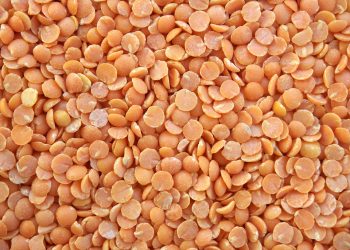Did you know that the vibrant, juicy mango isn’t just a tropical treat? This delightful fruit is also a powerhouse for boosting your metabolism! As someone who has always loved indulging in fruit salads and smoothies, I can’t help but sing the praises of mangoes. They’re not just delicious; they pack a serious nutritional punch. In this article, we’ll dive into five tasty ways that mango can rev up your metabolism and help you feel your best.
Contents
1. Rich in Nutrients and Antioxidants
Mangoes are loaded with essential vitamins and minerals that play a crucial role in metabolic processes. For instance, they are high in vitamin C, which is known to support the immune system and help with the absorption of iron. This is particularly important for those looking to maintain energy levels, as iron deficiency can lead to fatigue and a sluggish metabolism.
Nutritional Profile
A one-cup serving of mango contains:
- Calories: 99
- Carbohydrates: 25 grams
- Fiber: 5 grams
- Vitamin C: 67% of the Daily Value (DV)
- Vitamin A: 20% of the DV
The fiber content helps in digestion and can keep you feeling full longer, reducing the likelihood of overeating. Plus, the antioxidants in mangoes, like quercetin and beta-carotene, help combat oxidative stress, which can improve metabolic efficiency.
Some experts argue that consuming a diet rich in antioxidants can lead to better metabolic health. So, next time you enjoy a mango, remember that you’re not just treating your taste buds; you’re also giving your metabolism a boost!
2. Natural Sugars for Quick Energy
Mangoes contain natural sugars that can provide a quick source of energy. Unlike refined sugars, the sugars in mangoes come with fiber, vitamins, and minerals. This means they can give you a quick energy boost without the crash that often follows processed sugary snacks.
Energy and Exercise
If you’re planning a workout, consider snacking on a mango beforehand. The carbohydrates will fuel your muscles, and the fiber can help sustain your energy levels throughout your session.
However, it’s essential to keep portion sizes in mind. While mangoes are healthy, they are still relatively high in sugar compared to other fruits. Moderation is key! Incorporating a mango into your pre-workout snack can be a delicious way to enhance your performance while keeping your metabolism firing.
3. Enhances Digestion
Mangoes are a natural source of enzymes, particularly amylase, which aids in breaking down carbohydrates. Improved digestion can lead to better nutrient absorption, which is crucial for metabolic health. When your body effectively processes food, it can utilize energy more efficiently.
The Fiber Factor
The fiber in mangoes also plays a significant role in digestion. A high-fiber diet has been linked to improved metabolic rates. Fiber slows the absorption of sugar into the bloodstream, which can prevent spikes in insulin levels—another factor that supports a healthy metabolism.
Caveat: While mangoes are great for digestion, some people may experience gastrointestinal discomfort if they consume them in large quantities, especially if they’re not used to high-fiber fruits. Start with a moderate serving to see how your body reacts.
4. Hydration and Metabolism
Mangoes have a high water content—about 83% of their weight is water! Staying hydrated is crucial for maintaining a healthy metabolism. Dehydration can lead to a slowdown in metabolic processes and can also affect energy levels.
The Hydration Connection
Incorporating hydrating foods like mangoes into your diet can help you meet your daily water intake goals. This is particularly beneficial during hot weather or after exercise. Plus, they taste so refreshing, making it easy to stay hydrated.
Practical Tip: Try blending mangoes into smoothies or using them in fruit salads to add even more hydration to your meals. You can also freeze mango chunks for a cool treat on a hot day!
5. Supports Healthy Weight Management
The combination of low calories, high fiber, and natural sugars makes mangoes an excellent choice for those looking to manage their weight. When you feel full and satisfied, you’re less likely to reach for unhealthy snacks that can sabotage your weight loss efforts.
Metabolism and Weight Loss
Research shows that incorporating fruits like mango into your diet can support weight loss efforts. A study published in the Journal of Nutritional Science found that participants who consumed more fruits and vegetables experienced better weight management outcomes.
Let’s be real: the struggle with weight can often feel like an uphill battle. But by adding delicious, nutritious foods like mangoes to your meals, you’re setting yourself up for success. Snack on mango slices instead of chips, or add them to your morning oatmeal for a sweet twist.
FAQs
1. Can I eat mango every day?
Absolutely! Mangoes are nutritious and can be part of a balanced diet. Just be mindful of portion sizes, especially if you’re watching your sugar intake.
2. Are there any side effects of eating too much mango?
While mangoes are healthy, eating them in excess can lead to digestive issues due to their fiber and sugar content. Moderation is key.
3. How can I incorporate mango into my meals?
There are countless ways to enjoy mango! Add it to smoothies, salads, salsas, or even as a topping for yogurt or oatmeal.
4. Is mango better than other fruits for metabolism?
While mango has unique benefits, all fruits contribute positively to metabolism in different ways. Variety is essential for a balanced diet!
Conclusion
Mangoes are more than just a delicious tropical fruit; they offer a variety of benefits that can help boost your metabolism naturally. From their nutrient-rich profile to their ability to enhance digestion and support hydration, there are plenty of reasons to include mangoes in your diet.
As you explore different ways to enjoy this vibrant fruit, remember that balance and moderation are key. Whether you’re tossing mango slices into a salad or blending them into a smoothie, you’re taking delicious steps toward better metabolic health. So go ahead, indulge in a mango (or two) and enjoy the journey to a healthier you!
Disclaimer: This article is for educational purposes only and is not a substitute for professional medical advice. Always consult a qualified healthcare provider before making changes to your health routine.
References
- McKay, D. L., & Blumberg, J. B. (2010). Mango (Mangifera indica L.) and its potential health benefits: A review. Journal of Nutritional Science, 1, e1. https://doi.org/10.1017/jns.2010.1
- Mayo Clinic. (2021). Nutrition and healthy eating. Retrieved from https://www.mayoclinic.org/healthy-lifestyle
- Harvard Health Publishing. (2020). The health benefits of fruits and vegetables. Retrieved from https://www.health.harvard.edu/staying-healthy/the-health-benefits-of-fruits-and-vegetables
Get Your FREE Natural Health Guide!
Subscribe now and receive our exclusive ebook packed with natural health tips, practical wellness advice, and easy lifestyle changes — delivered straight to your inbox.
















